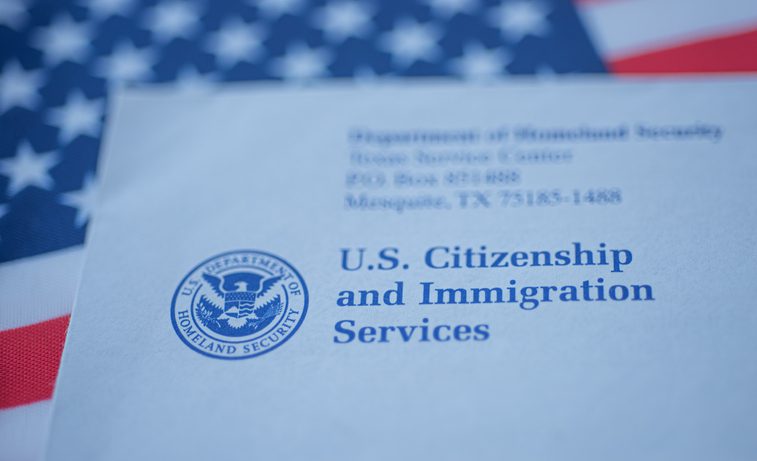
For individuals dreaming of establishing permanent residency in the United States, obtaining a green card is a crucial step. A green card, officially known as a Permanent Resident Card, provides foreign nationals with the privilege of living and working in the U.S. indefinitely. In this article, we will explore the eligibility criteria for green cards and provide a comprehensive guide on how to navigate the application process.
Understanding Green Cards and Permanent Residency
A green card serves as evidence of an individual’s status as a permanent resident in the United States. While the card itself is green, the nickname “green card” has become synonymous with lawful permanent residency. Holding a green card signifies the right to live and work in the U.S., as well as access certain social benefits. It’s important to note that a green card is not the same as U.S. citizenship; however, it is a significant milestone on the path to naturalization.
Eligibility Criteria for Green Cards
- Family-Sponsored Green Cards:
- One of the primary ways to obtain a green card is through family sponsorship. U.S. citizens can sponsor their immediate relatives, including spouses, unmarried children under 21, and parents. Additionally, green card holders (permanent residents) can sponsor their spouses and unmarried children.
- Employment-Based Green Cards:
- Individuals with specific job offers in the U.S. may be eligible for employment-based green cards. This category includes professionals with advanced degrees, skilled workers, and individuals with extraordinary abilities in their respective fields. Employers typically initiate the sponsorship process for their employees.
- Refugee or Asylee Status:
- Refugees and individuals granted asylum in the U.S. may apply for a green card after one year of residence. This pathway is designed to provide a permanent solution for those who have fled persecution or have been granted refuge in the country.
- Diversity Visa Lottery Program:
- The Diversity Visa (DV) Lottery Program is a unique way to obtain a green card. Each year, the U.S. government allocates a certain number of green cards through a lottery system for individuals from countries with low rates of immigration to the U.S. Winners are selected randomly, and eligibility is determined by nationality and educational or work qualifications.
- Special Immigrant Categories:
- Certain individuals may qualify for green cards through special immigrant categories, such as religious workers, international broadcasters, and employees of international organizations. These categories are designed to address specific needs and circumstances.
How to Apply for a Green Card
- Determine Your Eligibility:
- Before applying for a green card, it’s crucial to check your eligibility based on the criteria mentioned above. Understanding the category that best fits your situation will guide you through the appropriate application process.
- File a Petition:
- In most cases, someone must file a petition on your behalf for you to be eligible for a green card. This petition is typically submitted by a sponsoring family member, employer, or, in the case of refugees and asylees, by the individual themselves.
- Wait for USCIS Approval:
- Once the petition is filed, the United States Citizenship and Immigration Services (USCIS) will review and process it. If the petition is approved, USCIS will forward the case to the National Visa Center (NVC) or a U.S. consulate, depending on the immigrant visa category.
- Wait for Visa Availability:
- Green cards are subject to numerical limitations, particularly in family-sponsored and employment-based categories. Applicants must wait for visa numbers to become available, with priority given based on the filing date of the petition.
- File the Green Card Application:
- After the petition is approved, individuals residing outside the U.S. must complete an immigrant visa application. For those already in the U.S., an adjustment of status application is filed with USCIS. Both processes involve submitting extensive documentation, including medical examinations and financial records.
- Attend a Visa Interview:
- Those applying from abroad are required to attend a visa interview at a U.S. consulate or embassy. The purpose of the interview is to verify the authenticity of the application and assess the individual’s eligibility for a green card.
- Receive a Decision:
- Following the interview, the consular officer will make a decision on the green card application. If approved, the individual will receive an immigrant visa on their passport, allowing them to travel to the U.S. to receive their green card.
- Arrive in the U.S. and Receive the Green Card:
- Once in the U.S., individuals with immigrant visas must undergo an inspection at the port of entry. Upon successful entry, they will receive their green cards, officially granting them permanent resident status.
Obtaining a green card is a significant and often complex process that requires careful navigation of eligibility criteria and a thorough understanding of the application process. Whether pursuing family sponsorship, employment-based opportunities, or other pathways, individuals aspiring to become permanent residents in the United States must adhere to the stringent requirements outlined by U.S. immigration laws.
As immigration policies and procedures may undergo changes, it is advisable to stay informed and seek guidance from legal professionals or immigration experts. Navigating the pathway to a green card is not just a legal process; it’s a transformative journey that opens the door to new opportunities and a permanent place in the vibrant tapestry of American life.
If you need help navigating the immigration system or support with immigrating your family to the United States, please contact the Law Office of Shara Svendsen today by calling 425-361-1511 or by filling out our contact form.

